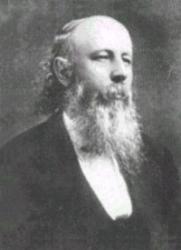Aconite is the general representative of antiphlogistics.
Effects in general. 1. Vascular System. It operates powerfully as a direct excitant of the vessels, and produces, therefore, true synocha.
2. Aconite produces no crasis, and has, therefore, no tendency to product- formation. Its action is purely dynamic, viz; the pulse is much accelerated, hard and strong; thermogenesis is increased; thirst great; general sensation abnormal.
3. It has a greater action on the more vascular organs hence above all, on the lungs, giving rise to various degrees of excitement; next to the lungs it affects the periphery, and last of all, the intestines. Hence congestion of blood to these parts, and haemorrhages.
4. It has no especial relations to the fibrous and mucous tissues, although it exerts an inflammatory action on all organs and tissues of the body. (Bryonia also has this specific action, although it excites the vascular system less intensely than Aconite).
5. Its action on the Nervous System is secondary. 1. The sensorium is either excited in consequences of the vascular excitement, hence delirium, or, 2. It is depressed by reason of the vascular congestion; hence sopor.
6. Aconite has characteristic morning and evening exacerbations; the majority of the pains are sticking; other pains occur according to the nature of the organ attacked.
General Indications. Aconite is generally indicated, 1. In all Inflammations in the beginning against the vascular excitement which always prevails, before the disease is fully developed. Its action is brief, and does not interfere with that of subsequent prescriptions. 2. As an alternating remedy after the development of the disease, when the vascular excitement continues.
Special Indications. 1. (1) Inflammatory Fever. (2). In all inflammations. a. While the vascular excitement is great, and before any product has yet formed. b. When the product is already forming, if the vascular storm has not abated. (3) Especially in inflammations of the serous and fibrous tissues; Aconite is preferable to all other remedies in these cases when the vascular excitement is great and a plastic exudation threatens(for less intense vascular excitement and a threatened serous exudation, Bryonia); hence in meningitis pleuritis, peritonitis, under these conditions.
2. In Ophthalmia, acute, with febrile excitement, a sovereign remedy.
3. In the periods of dentition and menstruation with vascular excitement. It does not disturb the menstrual function.
4. Acute Rheumatism.
5.Acute Catarrh.
6. Tuberculous with febrile excitement.
7. Vascular affections. Arteritis, pericarditis, and endocarditis. In organic heart disease, for the periodical excitement. (Aconite is preferable to Digitalis, which sometimes leaves injurious sequelae).
8. Violent dynamic congestions, depending on no organic cause.

